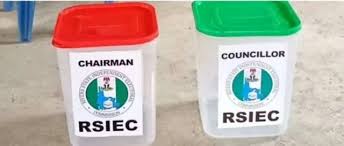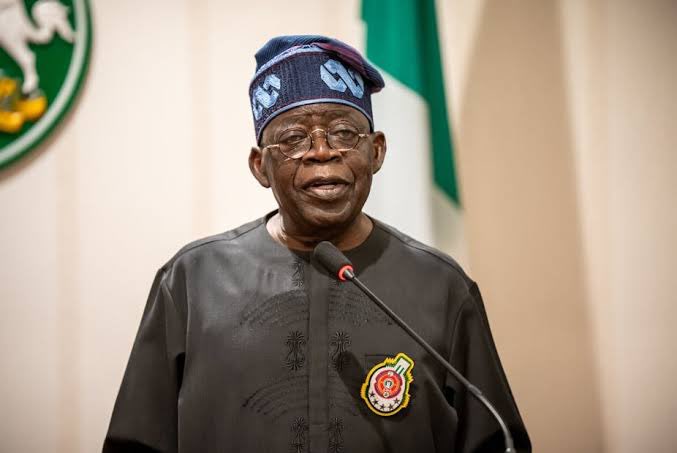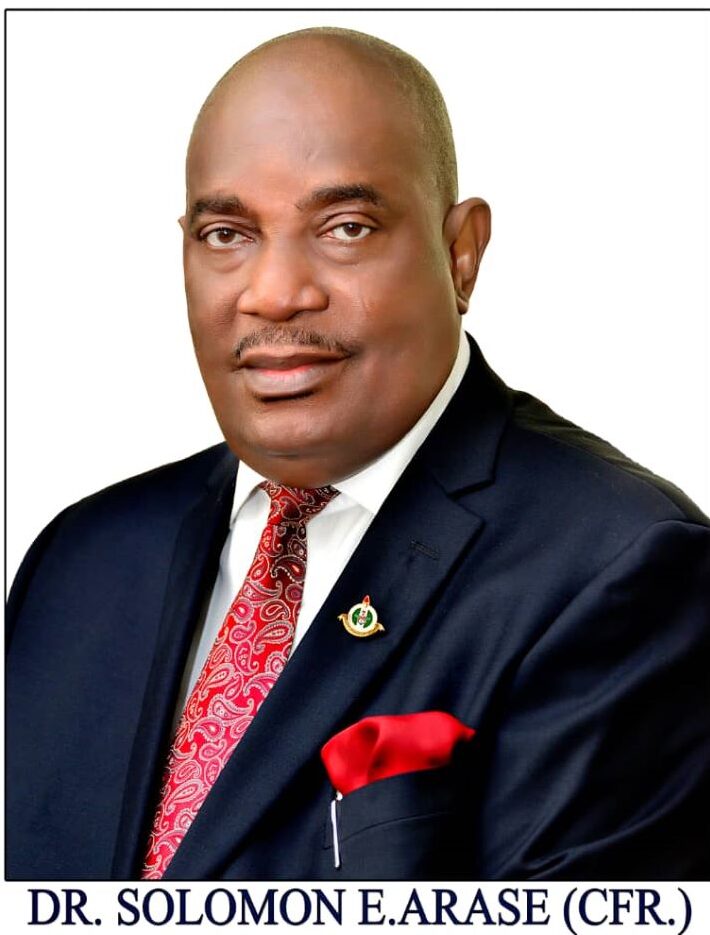In a sweeping victory, the All Progressives Congress (APC) has emerged triumphant in the Rivers State local government elections, clinching 20 out of the 23 available chairmanship positions. The elections, held on Saturday, August 30, 2025, saw the ruling party in the state, the Peoples Democratic Party (PDP), manage to secure only three local government areas (LGAs). The announcement of these results was made by the Chairman of the Rivers State Independent Electoral Commission (RSIEC), Dr. Michael Odey, on Sunday, August 31, 2025, at the commission’s headquarters along Aba Road in Port Harcourt. While the chairmanship and vice chairmanship results have been declared, the outcomes of the councillorship elections are still pending, adding an air of anticipation to the political landscape in Rivers State.
A Resounding Victory for the APC
The local government elections in Rivers State were a significant test of political strength for both the APC and the PDP, two of Nigeria’s most prominent political parties. The APC’s landslide victory underscores its growing influence in the state and signals a potential shift in the political dynamics of Rivers, a state historically seen as a stronghold of the PDP. The elections covered all 23 local government areas in the state, with chairmanship and councillorship positions up for grabs. The APC’s dominance in securing 20 of these LGAs highlights its organizational strength, grassroots mobilization, and ability to connect with voters across diverse regions of the state.
Dr. Michael Odey, the RSIEC Chairman, made the announcement in a press briefing attended by journalists, party officials, and election observers. According to Odey, the elections were conducted in a free, fair, and credible manner, with the commission adhering to all electoral guidelines. He commended the people of Rivers State for their peaceful conduct during the polls and praised the security agencies for ensuring a secure environment for voters. The announcement of the results was met with jubilation among APC supporters, who took to the streets of Port Harcourt and other parts of the state to celebrate their party’s overwhelming success.
The APC’s victories spanned a wide range of LGAs, including urban centers like Port Harcourt and Obio/Akpor, as well as rural areas such as Andoni, Asari-Toru, and Khana. This broad-based support reflects the party’s ability to appeal to both urban and rural voters, a factor that political analysts believe contributed significantly to its success. The APC’s campaign focused on issues such as infrastructure development, job creation, and improved service delivery at the local government level, resonating with voters who have long demanded better governance.
PDP’s Limited Success
In contrast, the PDP, which has controlled the Rivers State government for several years, suffered a major setback in the elections. The party managed to secure only three LGAs, a stark contrast to its historical dominance in the state. The specific LGAs won by the PDP were not detailed in the initial announcement, but the results indicate a significant erosion of the party’s influence at the grassroots level. The PDP’s poor performance has sparked discussions about its future in Rivers State, with some analysts suggesting that internal divisions and leadership crises may have weakened its electoral prospects.
The PDP had campaigned on its record of governance in the state, highlighting achievements such as road construction, healthcare improvements, and education reforms under the administration of Governor Siminalayi Fubara. However, these efforts appear to have been overshadowed by the APC’s aggressive campaign strategy and its ability to capitalize on public dissatisfaction with certain aspects of the state government’s performance. The PDP’s loss of 20 LGAs to the APC is a significant blow to its political standing and could have implications for future elections, including the 2027 general elections.
The Role of RSIEC and the Electoral Process
The Rivers State Independent Electoral Commission played a pivotal role in organizing and conducting the local government elections. Under the leadership of Dr. Michael Odey, the commission was tasked with ensuring a transparent and credible electoral process. Odey, in his address, emphasized that RSIEC had worked diligently to uphold the integrity of the elections. He noted that the commission had deployed adequate resources, including trained personnel and electoral materials, to ensure a smooth voting process across the state.
The elections were conducted across thousands of polling units in the 23 LGAs, with voters turning out in large numbers to elect their local government chairmen and councillors. The process was largely peaceful, with only minor incidents reported in a few areas. Security agencies, including the Nigeria Police Force and the Nigeria Security and Civil Defence Corps, were deployed to maintain order and prevent electoral malpractices. The presence of election observers, both domestic and international, further added to the credibility of the process.
Dr. Odey also announced the winners of the vice chairmanship positions, indicating that the commission had completed the collation and verification of results for these roles. However, he noted that the results of the councillorship elections were still being collated and would be announced at a later date. This delay has generated some speculation among political stakeholders, with some questioning whether the councillorship results could alter the overall narrative of the APC’s dominance.
Political Implications of the Results
The APC’s overwhelming victory in the Rivers State local government elections has far-reaching implications for the state’s political landscape. For one, it strengthens the party’s position as a formidable force in Rivers politics, challenging the PDP’s long-standing dominance. The APC’s success at the local government level could serve as a springboard for its ambitions in the 2027 governorship and general elections, providing it with a strong grassroots network to mobilize voters.
The results also highlight the shifting political allegiances in Rivers State, a region known for its complex and often volatile political environment. The APC’s ability to secure 20 LGAs suggests that it has successfully tapped into the aspirations of the electorate, particularly in areas where the PDP has faced criticism for underperformance. Issues such as unemployment, inadequate infrastructure, and poor service delivery have been major concerns for Rivers residents, and the APC appears to have positioned itself as a viable alternative to address these challenges.
For the PDP, the election results are a wake-up call. The party’s loss of 20 LGAs indicates a need for introspection and strategic repositioning. Internal divisions within the PDP, particularly between factions loyal to different political heavyweights in the state, may have contributed to its electoral woes. The PDP will need to address these issues and rebuild its grassroots support base if it hopes to regain its dominance in future elections.
Reactions and Analysis
The announcement of the election results has elicited a wide range of reactions from political stakeholders, analysts, and residents of Rivers State. APC leaders have hailed the victory as a testament to the party’s growing popularity and the people’s desire for change. In a statement, the APC state chairman described the results as “a vote of confidence in our party’s vision for Rivers State.” The party has promised to deliver good governance at the local government level, with a focus on empowering communities and addressing local needs.
On the other hand, the PDP has expressed dissatisfaction with the results, with some party leaders alleging irregularities in the electoral process. While the PDP has not formally challenged the results, there are indications that the party may seek legal redress in some LGAs. Political observers, however, note that the PDP’s claims of irregularities may face challenges, given the presence of election observers and the generally peaceful conduct of the polls.
Civil society organizations and election monitoring groups have also weighed in on the elections. Many have commended RSIEC for conducting a credible process, noting that the elections were largely free of violence and major logistical issues. However, some groups have called for greater transparency in the announcement of the councillorship results, urging RSIEC to expedite the process to avoid speculation and mistrust.
The Road Ahead
As Rivers State digests the outcome of the local government elections, attention will now turn to how the newly elected chairmen and vice chairmen will govern. Local government councils in Nigeria play a critical role in grassroots development, overseeing functions such as primary education, healthcare, and rural infrastructure. The APC’s dominance in 20 LGAs gives it significant control over these functions, providing an opportunity to implement its campaign promises and demonstrate its commitment to good governance.
For the PDP, the focus will be on regrouping and addressing the factors that led to its electoral losses. The party will need to engage with its supporters, resolve internal conflicts, and develop a coherent strategy to regain lost ground. The councillorship results, once announced, will also provide further insight into the extent of the APC’s dominance and the PDP’s performance at the ward level.
The local government elections have also set the stage for a more competitive political environment in Rivers State. With the APC now controlling the majority of LGAs, the party is likely to intensify its efforts to challenge the PDP’s hold on the state government. The 2027 governorship election, in particular, is expected to be a fiercely contested battle, with both parties already positioning themselves for the race.
Conclusion
The APC’s landslide victory in the Rivers State local government elections marks a significant turning point in the state’s political history. By securing 20 out of 23 chairmanship seats, the APC has demonstrated its growing influence and ability to mobilize voters across the state. The PDP, on the other hand, faces an uphill task to rebuild its support base and address the challenges that led to its poor performance. As the state awaits the announcement of the councillorship results, the focus will be on how the newly elected officials deliver on their promises and address the needs of Rivers residents. The elections have not only reshaped the political landscape but also set the stage for a new chapter in the state’s governance, with the APC now firmly in the driver’s seat at the local government level.






